#ecotherapy
Text
How Nature Makes Us Feel Better
A shiny new study just came out detailing nature’s restorative effects, specifically on children and adolescents. It’s an in-depth literature review that not only demonstrates the effectiveness of nature as a therapeutic tool, but supports the future use of standardized measures to make the study of ecopsychology, ecotherapy and similar practices more scientifically rigorous. The study is just the latest in a long line of research showing how nature makes us feel better.
Earlier this year, I wrote an article on nature’s effects on the brain. Mobile EEGs are able to record changes in the brain as study participants spend time outdoors, and multiple studies use their readings. This is an example of a more quantitative approach to studying the restorative effects of nature, in which certain metrics can be measured reliably over and over again.
But what, exactly, happens when nature makes us feel better? Let’s look at some of the measurable effects. (Note: I drew from a previous article of mine from several years ago for the following material, though it was a great opportunity to check in on more recent research.)

Physical Ways Nature Makes Us Feel Better
Increased Immune Function: This extensive literature review shows that time spent in nature improves immune function on a variety of levels. Studies show how time in nature can increase the number of white blood cells that help fight infection and other ailments: in senior citizens after exercising, and after forest bathing.
Improved Vision: Children are less likely to develop myopia (near-sightedness) when they spend more time outside. This study suggests that dopamine is a key player in this phenomenon. A literature review further supports the connection between eyesight and outdoor time.
Lower Blood Pressure: A 2020 study suggests that exposure to the UV light in sunshine can lower blood pressure. So can thirty minutes of outdoor activity (along with lowering symptoms of depression.) Forest bathing was shown to lower blood pressure in older people in a 2012 study. This study posits that nature’s effect on blood pressure may be accomplished through calming the sympathetic nervous system.
Improve Socioeconomic Conditions: Decreasing poverty is an incredibly important part of increasing intergenerational mobility in socioeconomically disadvantaged people. This 2019 study suggests that access to greenspace can reduce the chance of poverty by boosting creativity, emotional regulation, and academic performance. Another study links boosts in creativity with forest bathing, one particular use of greenspace. Moreover, greenspaces can also lower crime rates, another significant factor in improving conditions in disadvantaged communities.
As if all that wasn’t enough, this massive, comprehensive literature review has evidence that time in nature can not only lower blood pressure and resting heart rates, but also reduce the chances of heart disease, diabetes, and overall mortality. Speaking of mortality, here’s a study looking at how greenspace in particular can lower mortality in a stable community. And another one looking at lower mortality rates in urban areas with greenspace. And in case you thought that the effects of outdoor exercise was all about the exercise and not the setting, here’s one showing that mortality rates are lower when people specifically walk in greenspace.
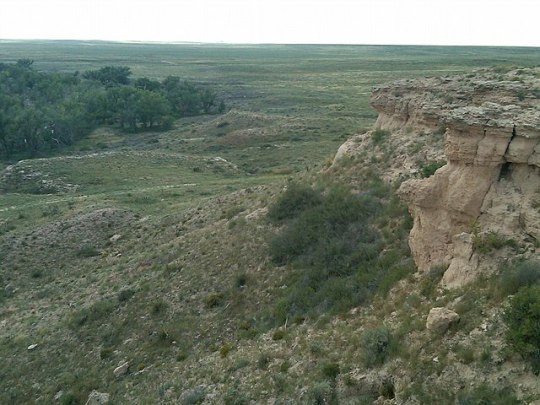
Psychological Ways Nature Makes Us Feel Better
Reduced Rumination: Psychological rumination is basically when your mind gets stuck on some worry, painful memory, or other negative thoughts. It’s commonly associated with anxiety and depressive disorders. Unlike meditation or problem-solving thoughts, rumination doesn’t actually help a person make any changes to their distress, and may actually make it worse, like incessantly poking at a bruise.
Time in nature has been shown to reduce rumination in study participants. A 2021 study demonstrates that spending a dedicated amount of time in nature each week significantly reduces rumination as well as negative affect (in other words, a bad mood.) You don’t need to spend hours out there, though; a half an hour may be enough to see a difference. It needs to be actual nature, though, as this 2018 study shows; people who viewed a slideshow of nature photos did show an improvement in affect, but no reduction in rumination.
Cognitive Function: Time in nature can help sharpen our mental capacity in a number of ways. This thorough, multidisciplinary literature review explores several of the ways nature is restorative, and also suggests some ways to further categorize these effects to increase consistency in future research. Hospitals that have significant greenspaces are easier to navigate due to improved spatial awareness, mood, and other factors. Cognitive performance can even be boosted simply by listening to the sounds of nature. Working memory may be improved through time spent in nature. Time outside can counteract attention fatigue, that feeling when your mind is so tired you just can’t focus. Can’t get outside? Even looking out a window can improve attention. And it may only take a very short period of time to start getting positive cognitive effects.
Stress Reduction: Stress can seriously strain cognitive functioning, from attention to memory and more, never mind overall mental well-being. So reducing stress is a good idea all around. A twenty minute walk in nature was shown to lower levels of cortisol, a stress-related hormone. A 2022 study compared the activity of the amygdala–sort of the brain’s panic button–before and after time spent in nature. The amygdala was much less active after a walk outside. Most studies have participants engage in a specific activity over a set amount of time and often in the same location to help remove confounding variables. However, a 2019 study that allowed participants to set their own parameters for where and when they would have their nature experiences showed that they still had significant drops in cortisol after being outside.
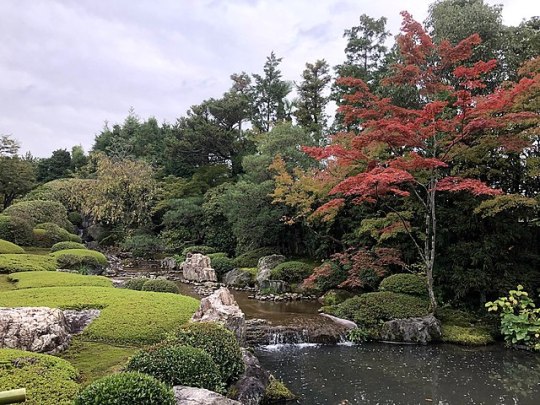
A Healthier Environment: Workers who are able to look out on a greenspace fare better than those who don’t. While virtual reality greenspaces can contribute some benefit, it’s better to go with the real deal, and the more biodiversity, the better. As mentioned earlier, hospitals with greenspace not only improve cognitive performance, but they’re also more pleasing to staff and patients alike. This literature review supports the therapeutic value of healing gardens in hospitals. (Note: These studies often cover both physiological and psychological benefits of greener built environments.)
A Sense of Awe: Nature inspires us to experience deep feelings of awe, which has been shown to improve mental well-being in multiple demographics. This transcendent experience can be incredibly healing and formative. Even better, the experience of feeling awe in nature can lead to more eco-friendly behavior by making people feel more connected to the natural world.
Soft Fascination: This is a term coined by researchers Rachel and Stephan Kaplan to refer to the more relaxed, organic way our attention flows when we are in a nature-dominated environment as opposed to a largely artificial one. A 2019 study demonstrates that it simply takes less mental effort for us to view natural scenes. We also find spending time in nature to be more restorative than watching TV for the same reasons. Also, for the fun of it, here’s a neat study exploring the intersection of soft fascination, sense of humor, and mental well-being.
Resilience: Social distancing due to the COVID-19 pandemic prompted studies on how nature can increase resilience, including this one on urban nature, and another on adolescents’ mental well-being.

Studies showing the benefits of nature are just one step in making use of nature’s restorative properties. One of the themes you’ll run into again and again when exploring this topic is that greenspace is most definitely not evenly distributed, especially in urban areas. Wealthy and privileged communities have disproportionately greater amounts of greenspace compared to socioeconomically disadvantaged ones, which makes the issue of mental health and nature based therapy a social justice issue.
Moreover, many natural places are not accessible to disabled people. A significant lack of infrastructure to get disabled people to these spaces, and then allowing them to explore them as extensively as non-disabled people, means that there is a serious disparity. While there are efforts toward equality in this area as well, there is still plenty of room for improvement.
Finally, nature should not only exist for our benefit, but for its intrinsic value independent of our human agendas and biases. While personal restoration and rejuvenation are certainly good things to enjoy whenever we get the opportunity to go outside, and we shouldn’t feel any guilt or shame for how nature makes us feel better, I think it is very important that we not take our greenspaces for granted, and work to make sure they are preserved and restored for generations to come.
Did you enjoy this post? Consider taking one of my online foraging and natural history classes, checking out my other articles, or picking up a paperback or ebook I’ve written! You can even buy me a coffee here!
#long post#psychology#ecopsychology#ecotherapy#health#nature#forest bathing#shinrinyoku#gardening#outdoors#forests#gardens#mental health#mental illness#depression#anxiety#stress#resilience
493 notes
·
View notes
Text
The atmosphere, the earth, the water and the water cycle - those things are good gifts. The ecosystems, the ecosphere, those are good gifts. We have to regard them as gifts because we couldn't make them. We have to regard them as good gifts because we couldn't live without them.
-- Environmentalist Wendell Berry
33 notes
·
View notes
Text
Nature - your best friend
Spending time in nature has been shown to have many benefits for mental and physical well-being. Whether you're going for a hike, gardening, or simply taking a walk in the park, there are many different ways to connect with nature. Here are some of the key benefits of spending time in nature:
Reduced stress: Nature has a calming effect on the mind and body, and can help to reduce stress levels and promote relaxation.
Improved mood: Spending time in nature has been shown to improve mood and reduce symptoms of depression and anxiety.
Enhanced creativity: Nature can inspire creativity by providing a peaceful and inspiring environment to think and create.
Better physical health: Spending time in nature can also have physical health benefits, such as reducing inflammation, improving immune function, and reducing blood pressure.
To connect with nature, you can try activities such as hiking, camping, gardening, or simply taking a walk in the park. You can also incorporate nature into your daily routine by bringing plants into your home, taking breaks outside during work hours, or going for a walk during your lunch break.
Ecotherapy, which is a form of therapy that involves connecting with nature, can also be an effective way to improve mental health and well-being. This can include activities such as horticultural therapy, outdoor mindfulness practices, and wilderness therapy.
In summary, spending time in nature can have many benefits for mental and physical well-being. By incorporating nature into your daily life and taking time to connect with the natural world, you can improve your mood, reduce stress, and enhance your creativity and overall well-being.

39 notes
·
View notes
Text
Biodiversity Is Nature’s ‘Magic’ That Improves Peoples’ Mental Health, study out of King's College London, published by Scientific Reports
by @GrrlScientist
3 notes
·
View notes
Text
Honestly though, I'm kind of keen on trying ecotherapy and therapy thats outdoors and has animals when we move and have to find a new therapist. We've been a bit haunted by our CSA shit thinking about finding a new therapist cause we know we should go back to working on it now that we got our autism ducks in line and thinking about it just stresses our nervous system again but I'm really hoping we can make ecotherapy work. If not that I am thinking with our level of lowered dissociation that we might go for EMDR or maybe ketamine assisted therapy (wed have to do more research on it before wed be comfortable trying it)
6 notes
·
View notes
Text

Source: Unknown
“We need the tonic of wildness...At the same time that we are earnest to explore and learn all things, we require that all things be mysterious and unexplorable, that land and sea be indefinitely wild, unsurveyed and unfathomed by us because unfathomable. We can never have enough of nature.”
― Henry David Thoreau, Walden: Or, Life in the Woods
#TonicOfWildness#WildAndFree#NatureLover#NaturalBeauty#UnexploredTerritory#MysteriousNature#InfiniteWilderness#UnfathomableMystery#Ecotherapy#OutdoorAdventures#BackToNature#WaldenQuotes#HenryDavidThoreau#LifeInTheWoods#NatureWriting#PhilosophyOfNature#Transcendentalism#SpiritualConnection#EarthAppreciation#Environmentalism#Conservation#NatureTherapy#Mindfulness#OutdoorLife#Exploration#NaturalWonder#NaturalWondersOfTheWorld
8 notes
·
View notes
Text
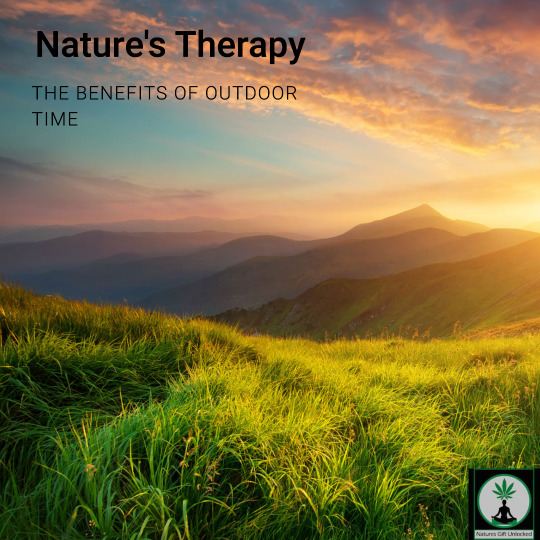
Embrace Nature: Unveiling the Benefits of Spending Time Outside
In today's fast-paced world, finding moments to connect with nature is more important than ever. Stepping outside and immersing ourselves in the beauty of the natural world can have a profound impact on our physical, mental, and emotional well-being. In this article, we delve into the remarkable benefits of spending time outside, exploring how it can rejuvenate our senses, improve our health, and foster a deep sense of connection with the world around us.
Facts about the Benefits of Spending Time Outside:
Boosted Mood and Mental Health:
Spending time in nature has been shown to reduce stress, anxiety, and symptoms of depression.
It promotes the release of endorphins, serotonin, and dopamine, which are natural mood-boosting chemicals in the brain.
Enhanced Physical Health:
Outdoor activities like walking, hiking, or gardening can improve cardiovascular health, increase energy levels, and strengthen the immune system.
Exposure to natural sunlight helps our bodies produce vitamin D, which is crucial for bone health and supports a healthy immune system.
Heightened Creativity and Focus:
Immersing ourselves in natural surroundings can enhance creativity and stimulate our cognitive abilities.
Studies have shown that spending time outside improves attention span, problem-solving skills, and overall mental clarity.
To explore the full range of benefits that spending time outside can offer and discover practical tips on incorporating nature into your daily routine, click the link below to read the complete article.
#NatureTherapy#OutdoorWellness#NatureBenefits#Ecotherapy#ForestBathing#FreshAir#OutdoorHealing#VitaminNature#NatureConnection#NatureInspired
2 notes
·
View notes
Text

You don’t have to go big or go fast. A beautiful life is often made with small steps and a slower pace. The latest card in my Gardener’s Oracle.
#art therapy#analog collage#ecotherapy#neurodivergent artist#queer artist#collage#creative practice#oracle cards#personal oracle
2 notes
·
View notes
Photo

I ❤️ Mushrooms 🍄 #mushrooms #mushroom #fungi #fungus #fungiphotography #nature #naturephotography #ecotherapy #naturetherapy #foraging (at Warburton, Victoria) https://www.instagram.com/p/Cd5mNvvJHec/?igshid=NGJjMDIxMWI=
#mushrooms#mushroom#fungi#fungus#fungiphotography#nature#naturephotography#ecotherapy#naturetherapy#foraging
1 note
·
View note
Photo

Soak up the vibrant hues of a Joshua Tree basking in the warm sunlight, set against a desert backdrop. It's nature's own masterpiece, complete with blue skies and a peaceful water element.
#joshuatree#desertvibes#naturephotography#warmtones#blueskies#tranquility#landscape#naturelovers#goldenhour#desertlife#ecotherapy#outdoorbeauty#waterfeature#sunlightmagic#wildernessexplorer
1 note
·
View note
Text
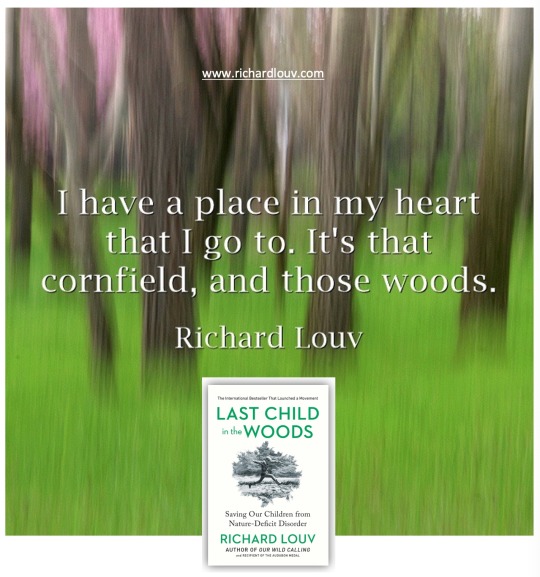
FOR MORE INFORMATION: www.richardlouv.com
#vitaminn#vitaminnchallenge#naturedeficitdisorder#lastchildinthewoods#childrenandnature#ourwildcalling#richardlouv#wild#biophillia#future#thenatureprinciple#health#education#environmentaleducation#outdooreducation#ecopsychology#ecotherapy#childrenandnaturenetwork#richardlouvprize
1 note
·
View note
Text
One of the toughest things I have to balance out as someone who is trained in and advocates for ecopsychology and ecotherapy is the use of the restorative properties of nature versus the impacts our time in nature can have on other living beings. There are scads of studies that support the many mental and physical benefits for us when we spend even a little time outdoors.
But I think this article (which you can read in full here) does raise some important points. Almost all wildlife are dealing with some level of habitat loss and fragmentation, and if sensitive species are being pushed out of what's left due to human presence, then that puts them at greater risk of extinction. There's still more research to do on this subject, of course, to include seeing which species are most heavily affected and which activities have the greatest negative impact. The results could help us to be more judicious in where and how we engage with the outdoors, especially in less populated areas.
I don't think we should just stop going to any place wilder than a city park. Part of how we ended up in our current situation with widespread ecological devastation is an increasing perceived separation from the rest of nature. The more time we spend in direct contact with other non-domesticated species, the more we learn about them and the more responsibility we feel toward them. And there's something very healing about the awe one experiences when seeing an elusive wild animal, even at a distance, or being immersed in a wild place that makes us feel we are a part of something so much greater than ourselves.
But we really do need to be paying attention to and asking questions about the side effects of our journeys into wilder nature, and then using that to help keep adjusting the balance between our needs and those of other living beings. I look forward to seeing more studies on this topic.
#hiking#outdoors#nature#wildlife#wilderness#ecopsychology#ecotherapy#nature therapy#mental health#ecology#animals#environment#conservation#environmentalism
62 notes
·
View notes
Text
"Sometimes, the most productive thing that you can do is to step outside and do nothing… relax and enjoy nature."
-- Melanie Charlene
49 notes
·
View notes
Text
The Connection Between Nature And Mental Health: Ecotherapy Explained
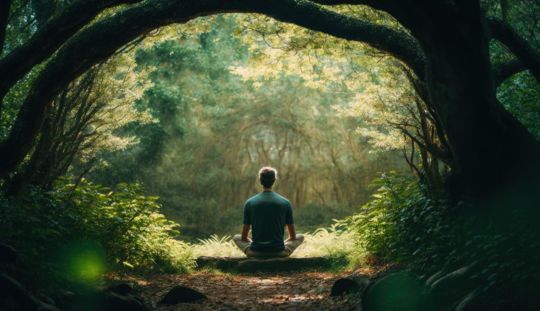
Ecotherapy, also known as nature therapy or green therapy, is a therapeutic practice that explores the profound connection between nature and mental health. This field of eco-psychology has gained recognition for its ability to promote emotional well-being, reduce stress, and improve overall mental health. Let’s delve into this fascinating topic with some research support and citations.
The relation between Nature and Mental Health:
1. Nature’s Stress-Reducing Effect:
Numerous studies have highlighted nature’s stress-reducing benefits. For example, Bratman et al., (2015) found that a 90-minute walk in a natural setting significantly reduced rumination, a key factor in depression.
2. Enhanced Mood and Emotional Well-being:
Exposure to nature has been linked to improved mood and emotional well-being. A 2019 study in the “International Journal of Environmental Health Research” reported that individuals who spent time in natural settings reported greater happiness and lower levels of anxiety.
3. Ecotherapy’s Therapeutic Approach:
Ecotherapy employs various techniques, such as wilderness therapy, horticultural therapy, and animal-assisted therapy, to help individuals connect with nature. These practices can provide a sense of purpose and reduce symptoms of depression and anxiety.
4. Biophilia Hypothesis:
The concept of biophilia, introduced by E.O. Wilson suggests that humans have an innate, biological connection to nature. This connection is believed to have a profound impact on mental well-being, and ecotherapy capitalizes on this connection to promote healing.
5. Ecotherapy’s Real-world Success:
Ecotherapy has been successfully implemented in various therapeutic settings. An example is the “Shinrin Yoku” or forest bathing practice in Japan, which involves mindful immersion in a forest environment. Research indicates that forest bathing can lower cortisol levels and improve overall mental health.
Here are some more examples of ecotherapy practices:
Wilderness Therapy: This form of ecotherapy involves guided, outdoor adventures in natural settings like forests or mountains. Participants engage in various activities, such as hiking, camping, and group discussions, to promote personal growth, self-awareness, and emotional healing.
Horticultural Therapy: Horticultural therapy utilizes gardening and plant-based activities to improve mental health. It has been effective in various settings, from mental health institutions to rehabilitation centers. Cultivating and caring for plants can boost self-esteem, reduce symptoms of anxiety and depression, and enhance a sense of accomplishment.
Animal-Assisted Therapy: Ecotherapy can involve interactions with animals, particularly in the context of mental health treatment. Programs that include horses (equine therapy), dogs, or other animals offer therapeutic benefits by fostering trust, communication, and emotional connection.
Nature Meditation and Mindfulness: Ecotherapy often incorporates meditation and mindfulness practices in natural surroundings. These sessions help individuals become more present and in tune with the environment, reducing stress and promoting relaxation.
Eco-Art Therapy: Art therapy combined with natural settings can be a powerful form of ecotherapy. Individuals engage in artistic activities like painting, drawing, or sculpture while immersed in nature, allowing them to express their emotions and connect with the environment on a deeper level.
Adventure Therapy: This form of ecotherapy combines outdoor adventure activities such as rock climbing, kayaking, and wilderness exploration with therapeutic interventions. It can help individuals overcome fears, develop problem-solving skills, and build self-confidence.
Green Exercise: Ecotherapy can be as simple as incorporating physical activities into nature, such as outdoor yoga classes, walking or running in parks, or cycling through scenic routes. Engaging in exercise in natural settings has been shown to enhance mood and reduce symptoms of anxiety and depression.
Eco-Resilience Training: Some ecotherapy programs focus on developing resilience in the face of environmental challenges. These programs teach individuals how to cope with climate-related stressors and find psychological well-being by fostering a deeper connection to nature.
These examples demonstrate the diversity of ecotherapy practices and how they can be tailored to meet the unique needs and preferences of individuals seeking to improve their mental health by connecting with the natural world.
Quick Recap:
In conclusion, the connection between nature and mental health, as explored through ecotherapy, is backed by a growing body of scientific evidence. Spending time in nature, whether through structured ecotherapy sessions or unstructured outdoor activities, can have a profound and positive impact on mental health. By acknowledging and nurturing our relationship with the natural world, we can harness its therapeutic potential to enhance our overall well-being. Connecting individuals with the therapeutic benefits of nature, Imperfect seamlessly integrates the healing power of the outdoors to enhance mental health and well-being.
– Urveez Kakalia.
0 notes
Link
Benefits of Forest Bathing: Experience Nature's Healing Powers Forest bathing, also known as Shinrin-yoku in Japanese, is a practice that involves immersing oneself in nature and connecting with the healing powers of the forest. This therapeutic activity has gained popularity in recent years due to its numerous benefits for both physical and mental well-being. Stress Reduction and Improved Mental Health One of the key benefits of forest bathing is its ability to reduce stress and promote mental well-being. Spending time in nature, away from the hustle and bustle of daily life, allows us to slow down and relax. The peaceful and serene environment of the forest has a calming effect on our minds, helping to reduce anxiety and alleviate symptoms of depression. Boosted Immune System Research has shown that spending time in nature, particularly in forests, can have a positive impact on our immune system. The forest air is filled with essential oils called phytoncides, which are released by trees and plants. Breathing in these phytoncides can enhance the activity of our natural killer cells, a type of white blood cell that plays a crucial role in fighting off infections and diseases. Improved Sleep Quality In today's fast-paced world, many people struggle with sleep issues. Forest bathing can be a natural remedy for improving sleep quality. The fresh air, calming sounds of nature, and the absence of artificial light in the forest create an ideal environment for a restful night's sleep. Additionally, spending time in nature during the day helps regulate our circadian rhythm, making it easier to fall asleep and wake up at the desired times. Enhanced Cognitive Function Studies have shown that spending time in nature can improve cognitive function and enhance creativity. Forest bathing allows our minds to rest from the constant stimulation of technology and urban environments. The tranquility of the forest helps to restore our attention capacity, improve concentration, and boost problem-solving skills. It also provides a space for reflection and introspection, fostering creativity and a sense of clarity. Increased Energy and Vitality When we immerse ourselves in nature, we absorb the natural energy surrounding us. Forest bathing revitalizes our senses and rejuvenates our body and mind. The combination of fresh air, natural light, and the soothing sounds of the forest can leave us feeling energized and invigorated. It is a powerful way to recharge and escape the demands of everyday life. Connection with Nature and Self Forest bathing offers an opportunity to connect with nature on a deeper level. It allows us to appreciate the beauty and wonder of the natural world, fostering a sense of awe and gratitude. By immersing ourselves in the forest, we can develop a greater understanding of our place in the ecosystem and cultivate a sense of environmental stewardship. Additionally, forest bathing provides a space for self-reflection and introspection, promoting personal growth and well-being. [caption id="attachment_80679" align="aligncenter" width="696"] benefits of forest bathing[/caption] In conclusion, forest bathing offers a multitude of benefits for our overall well-being. From reducing stress and improving mental health to boosting our immune system and enhancing cognitive function, the healing powers of the forest are truly remarkable. By incorporating forest bathing into our lives, we can experience the transformative effects of nature and find solace and rejuvenation amidst the trees. Frequently Asked Questions about the Benefits of Forest Bathing 1. What is forest bathing? Forest bathing, also known as Shinrin-yoku, is a practice of immersing oneself in the atmosphere of a forest to improve mental and physical health. 2. What are the benefits of forest bathing? Forest bathing has numerous benefits, including reduced stress levels, improved mood, increased creativity, enhanced immune system, and lower blood pressure. 3. How does forest bathing reduce stress? When we spend time in nature, especially forests, it helps to lower stress hormone levels, promote relaxation, and improve overall well-being. 4. Can forest bathing improve mental health? Yes, forest bathing has been found to have positive effects on mental health by reducing symptoms of anxiety, depression, and improving concentration and focus. 5. Does forest bathing boost the immune system? Yes, spending time in forests exposes us to phytoncides, natural airborne chemicals released by trees, which can enhance our immune system's natural defense mechanisms. 6. How does forest bathing enhance creativity? Forest bathing helps to clear the mind, reduce mental fatigue, and stimulate creative thinking by providing a peaceful and inspiring natural environment. 7. Can forest bathing lower blood pressure? Studies have shown that spending time in forests can lead to a decrease in blood pressure, promoting cardiovascular health and reducing the risk of heart disease. 8. How often should one practice forest bathing? While any amount of time spent in nature can be beneficial, it is recommended to practice forest bathing at least once a week to experience its full benefits. 9. Is forest bathing suitable for everyone? Yes, forest bathing is suitable for people of all ages and fitness levels. It can be adapted to individual preferences and abilities, making it accessible to everyone. 10. Can forest bathing be combined with other activities? Absolutely! Forest bathing can be combined with activities such as yoga, meditation, hiking, or simply enjoying a picnic in nature, enhancing the overall experience.
#ecotherapy#forest_healing#forest_immersion#forest_meditation#forest_mindfulness#forest_rejuvenation#forest_relaxation#forest_therapy#forest_therapy_walk#green_therapy#nature_immersion#nature_therapy#shinrin_yoku#woodland_therapy
0 notes
Text
Ecotherapy: Is Nature All You Need For Optimal Wellbeing?
To be one with nature is important in this fast paced life What exactly is Ecotherapy and could it be what you need to improve
0 notes